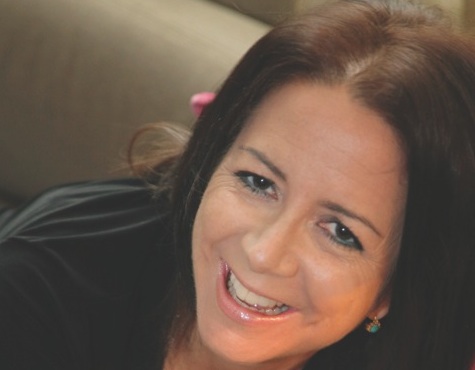Lisa Napoli is the author of Radio Shangri-La: What I Discovered on my Accidental Journey to the Happiest Kingdom on Earth. She’s always had a proclivity for the offbeat and quirky. She was a reporter and back-up host for Marketplace, the public radio show, and one of the first journalists to chronicle the dawn of the Internet age at the New York Times and MSNBC. Besides learning to swim at age 37, her proudest accomplishment is the parties she holds every Friday night, where she relishes seeing friends befriend one another. A native of Brooklyn and a graduate of Hampshire College, she currently lives in Los Angeles, and can be heard each day on the legendary public radio station, KCRW in Santa Monica.
How did you get started traveling?
When I worked at CNN as a young woman at the start of the network, we were given a lot of vacation time. And you had to use it, to de-stress from the new stress of 24-7 news and the weird hours we kept. I always loved and savored reading southern fiction growing up in Brooklyn, so I felt like I had died and gone to heaven, living in such an unusual place as Atlanta. I didn’t have much money, so I’d get in the car and drive to the hometowns of my favorite authors. Milledgeville, Georgia (Flannery O’Connor). Jackson, Mississippi (Eudora Welty). Monroeville, Alabama (Truman Capote). It was heaven.
Around this time, I read an interview with Jodie Foster, who is about my age. She said she valued “experiences over possessions.” That really stuck with me, the idea of spending your money to go places rather than acquiring things. Add to that my upbringing: My family never traveled much. It was a resources thing, but also a mentality that since we lived in New York, what else was there? My parents are also very big city people, not fans of wide open spaces. All these things conspired to make me want to see the world, to meet people in as many places as possible.
How did you get started writing?
On the front porch of our houses in Brooklyn when we were kids, my best friend Liz and I would sit with notepads and write, write, write. For no particular reason. It just seemed like a natural way to spend time, reading, and then writing.
What do you consider your first “break” as a writer?
Though I’d written journalism for various outlets and was very grateful for each, the most amazing twists happened when Rob Fixmer at the New York Times was given a column I’d written on spec for the New York Observer, that had been rejected. It was about the early days of the World Wide Web in New York City…a subject people didn’t talk much about then. We met and talked about the emerging universe of the Web and all the exciting things that were going on. He then gave me a column, called Hyperwocky, and really invested in my work, and encouraged me.
As a traveler and fact/story gatherer, what is your biggest challenge on the road?
Turning off the connection to home and being in the moment. Even though that’s exactly what I’m yearning for by leaving.
What is your biggest challenge in the research and writing process?
Verifying information, and honing it down. But the best stuff always emerges naturally, I find.
What is your biggest challenge from a business standpoint?
I spend virtually every moment thinking about how to promote my book. No one is as invested in it as I am. I think that’s the case with most writers.
Have you ever done other work to make ends meet?
Right now I work in radio to feed my writing habit, but it doesn’t seem like too far a stretch and I am incredibly fortunate. to have made a living as a journalist for many years, even if it’s not always doing exactly what I want.
What travel authors or books might you recommend and/or have influenced you?
Pico Iyer is the classiest, kindest and most generous man, who happens also to be a magnificent writer.
What advice and/or warnings would you give to someone who is considering going into travel writing?
Don’t do it, or anything, to make money. Do it because you can’t imagine doing anything else. Do it because you value experiences over possessions. If you don’t, don’t!
What is the biggest reward of life as a travel writer?
The biggest reward of being alive at this moment in time, much less being able to write about it, is how rich and dimensional and interconnected our great big beautiful planet is.

